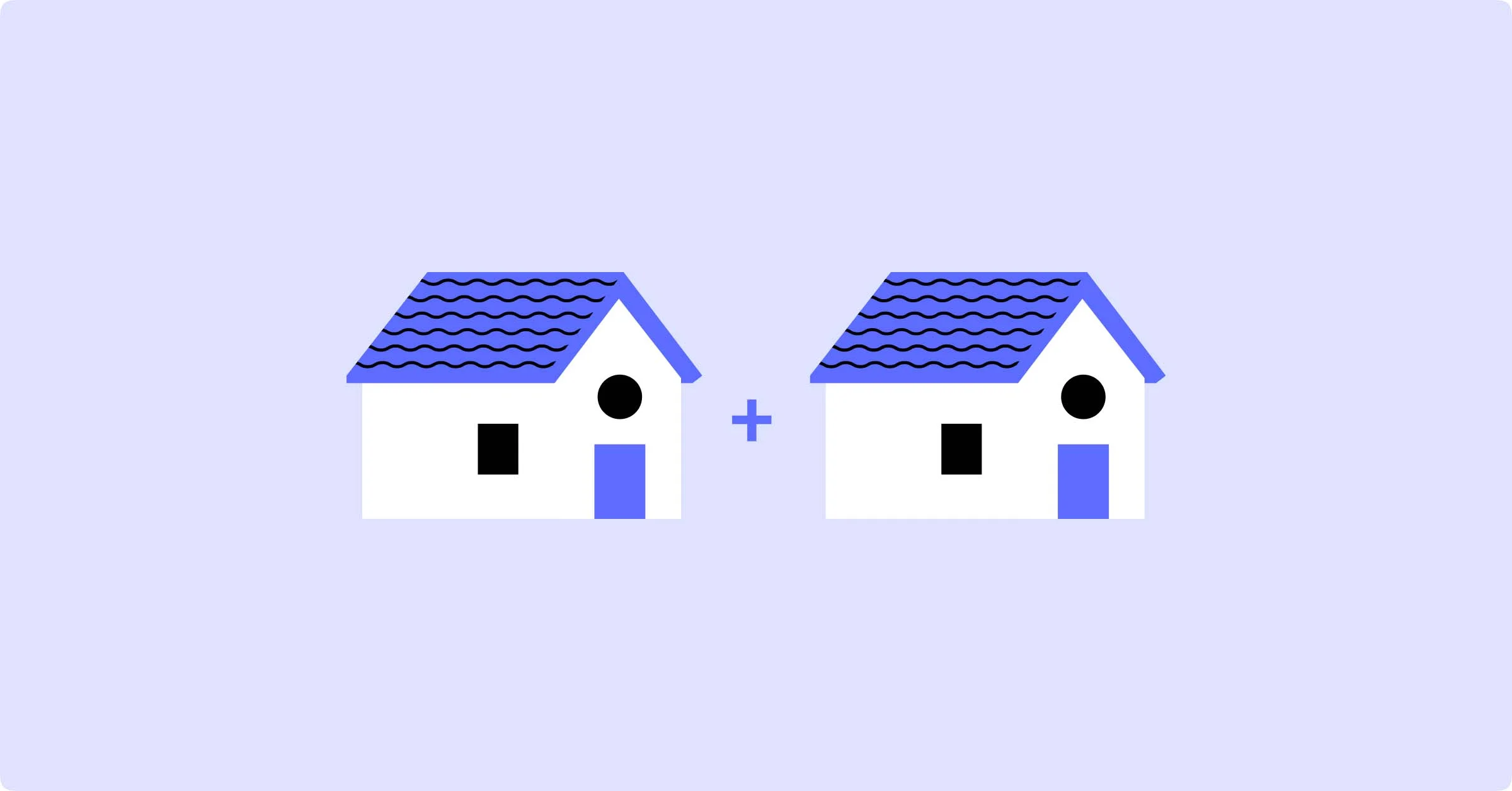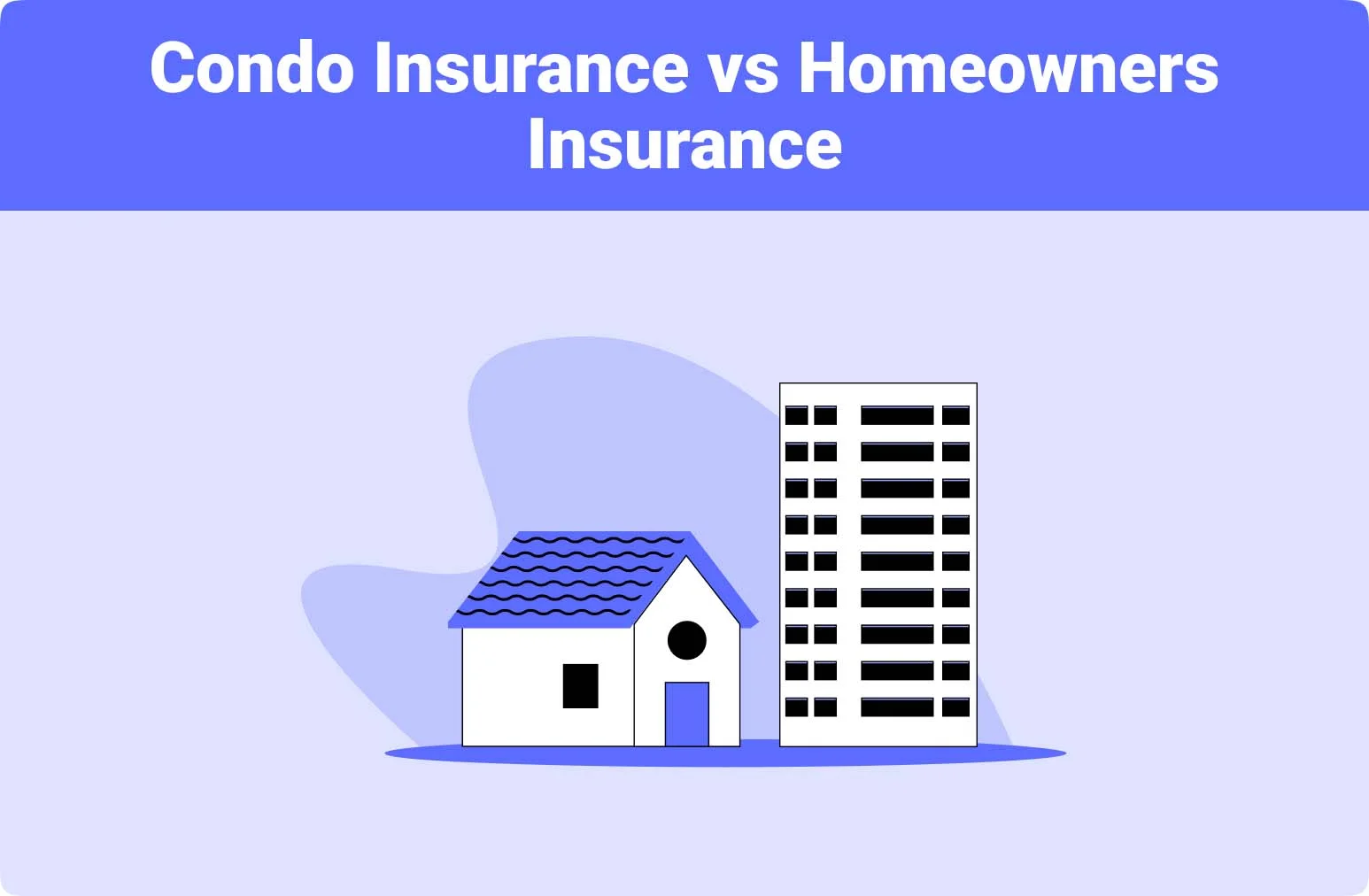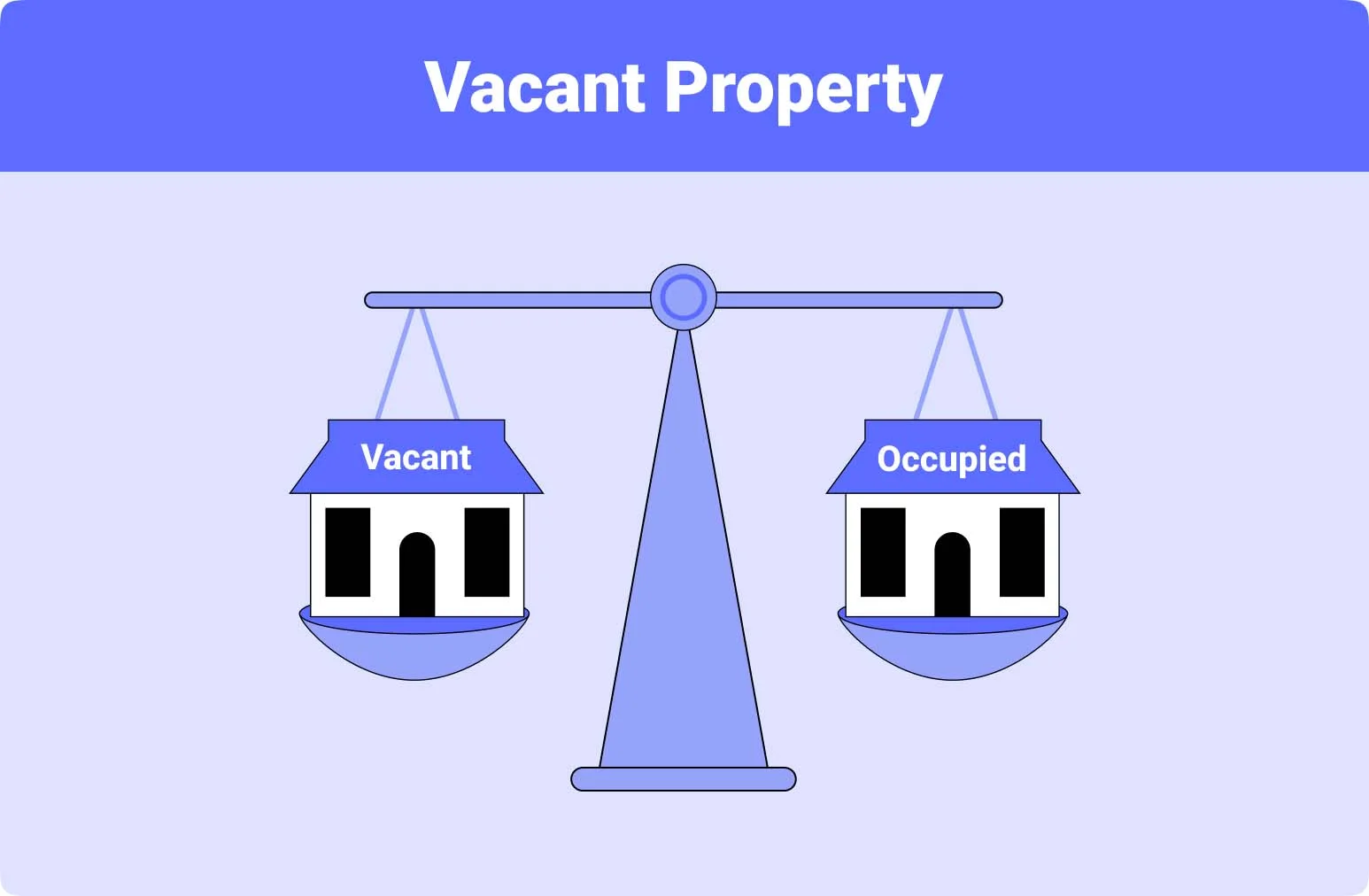UPDATED: AUGUST 10, 2023 | 1 MIN READ

If you own a vacation home or any second residence, you want to protect that property as much as possible so that you can enjoy it for many years to come. As with your primary residence, a homeowners insurance policy is vital for a second home, no matter how often it’s visited throughout the year and its overall value.
While maintaining a homeowners insurance policy is important for your second home, you might wonder what policies are recommended, if there’s additional coverage to consider for a home that’s often vacant, and the differences between condo insurance and coverage for a standard home.
What are the most important home insurance coverage options?
While there are many forms of insurance you can purchase for a residence, note the most important forms of coverage and what these policies cover:
- A homeowner or dwelling policy reimburses the cost of repairing or rebuilding a structure in case of a fire or other disaster.
- Personal property insurance reimburses the cost of items inside the dwelling not covered by your homeowners policy. These items would include kitchen appliances, furniture, and your personal belongings.
- Liability insurance reimburses the cost of medical bills and property damage for which you’re responsible; for example, if someone were to fall in your home, liability insurance would pay the costs of their resultant medical care.
Will your current homeowners policy cover two homes?
It might. Before you shop for additional insurance for that vacation condo, check with your insurance agent about your current coverage. Your current homeowners insurance policy might cover a second home, depending on the policy itself.
Even if you need to add some coverage for your second home, it might be cheaper to rewrite your current policy than to buy a new one altogether.
How is condo insurance different than standard homeowners insurance?

A condo owner typically needs what is called a walls-in policy. As the name implies, a walls-in policy covers damage to the condo starting from the interior walls inward. If your second home is a condo, an apartment in a co-op, or another interior unit, ask your insurance agent if you only need a walls-in policy.
A homeowners or dwelling insurance policy covers costs for repairing an entire structure, including its roof, interior plumbing, and attached porches or decks.
However, most condo owners are only responsible for repairing their units. In contrast, damage to the building’s roof and outside areas, including plumbing between units, is often the responsibility of the HOA or condo association.
Do you need homeowners insurance if you pay an HOA fee?
In short, yes. If you pay a homeowners association or HOA fee for your second home, never assume that those fees include insurance for your residence.
Your HOA fees might cover the cost of an insurance policy for common areas of a condominium complex and exterior surfaces. However, those fees rarely provide insurance coverage for each unit in a complex.
If your second home is an attached unit of any sort, meaning an apartment, condo, or townhouse, you must understand the repairs for which you’re responsible in case of a storm or other disaster.
Your HOA agreement should outline your fees and suggest the insurance types needed for your unit. Your insurance agent can also help you decide the best policy for an attached property.
Are there special considerations for coastal homes?
Ask about hurricane and windstorm damage limitations if your second home is on the coast or in the tropics. Some homeowners insurance policies offer limited coverage for hurricanes and storm damage in coastal areas, if any. You might want to purchase additional hurricane or storm damage coverage.
It’s also suggested that you discuss ways of lowering your insurance costs for your coastal home with your agent. Installing hurricane shutters, thick window film, roof coatings and sealants, and other measures might provide added protection against storm damage and, in turn, lower your insurance costs for your coastal home.
Importance of vacant property insurance for second homes

If you own a second home that’s frequently unoccupied for extended periods, it’s essential to consider the benefits of vacant property insurance. This specialized coverage protects against risks specific to vacant or unoccupied properties, addressing potential vulnerabilities that standard homeowners insurance may not fully cover. Here’s why vacant property insurance is important for your second home:
- Protection against vandalism and theft: Vacant properties are more susceptible to vandalism and theft. Without occupants or regular monitoring, these homes can become targets for criminals. Vacant property insurance covers these risks, ensuring that any damages or losses resulting from vandalism or theft are financially protected.
- Coverage for property damage: During vacancy periods, your second home may be exposed to various risks, such as weather-related damage, fire, or plumbing issues. Vacant property insurance provides coverage for these types of property damage that can occur when no one is present to address or mitigate the issues promptly.
- Liability coverage: Even if your second home is unoccupied, there’s still a potential liability risk. If someone is injured on your property during its vacant period, you could be held responsible for medical expenses and other related costs. Vacant property insurance typically includes liability coverage to protect you in such situations.
- Flexibility for rental gaps: If you occasionally rent out your second home, vacant property insurance can help bridge any gaps in coverage when the property is unoccupied between tenants. It ensures continuous protection during rental turnover periods, safeguarding your investment against unforeseen events.
What if the second home is rented out sometimes?
If you rely on the rental income from your second home, consider obtaining “loss of use” or fair market value insurance for the property. This insurance reimburses you for lost rent while the structure is repaired or restored after a disaster. Some loss-of-use policies also reimburse your tenants a small amount for their moving expenses. You might also need short-term rental insurance to cover gaps when the home is vacant.
Are my tenants’ belongings covered?
Ensure your tenants understand that their personal belongings aren’t covered under your homeowners insurance policy. Tenants might want to carry renters or personal property insurance for themselves so they get reimbursed for the cost of damages to their items if something happens to their rental unit.
Can you buy multiple insurance policies for a home?
To address coverage limits, consult your agent about additional or separate types of coverage. For example, you might purchase an additional policy that explicitly covers vacant property, vandalism, or damage caused during a break-in if your second home is left vacant for many days or weeks throughout the year.
Buying multiple insurance policies for a home is allowed, but profiting from insurance reimbursement isn’t. Making claims with multiple policies from different companies after a fire or storm is insurance fraud.
Factors affecting insurance premiums for second homes
Several factors can influence your insurance premiums when insuring your second home. Understanding these factors can help you make informed decisions about your coverage options.
Location
The geographical location of your second home plays a significant role in determining insurance premiums. Properties in areas prone to natural disasters, such as coastal regions susceptible to hurricanes or flood-prone areas, may have higher insurance costs due to the increased risk of damage. On the other hand, homes located in low-risk areas may qualify for lower premiums.
Property value
The value of your second home also affects insurance premiums. Higher-valued properties generally require higher coverage limits, resulting in increased premiums. Additionally, expensive materials or unique features in your home may impact the cost of insurance.
Occupancy frequency
How often you use your second home can impact your insurance rates. Suppose you only visit the property occasionally or use it as a seasonal vacation home. In that case, insurers may view it as a higher risk due to potential issues like unattended maintenance or increased vulnerability to theft. Occupied year-round homes may be considered lower risk, resulting in more favorable premiums.
Security measures
The security measures implemented in your second home can influence insurance costs. Installing security systems, burglar alarms, fire alarms, deadbolt locks, and surveillance cameras can deter theft and minimize the risk of damage. Insurers often provide discounts for such security features, which can help lower your premiums.
Previous claims history
Your claims history can impact insurance premiums for your second home. If you’ve previously filed multiple claims or have a history of significant losses, insurers may perceive your property as a higher risk. Maintaining a claims-free record is important to help keep your premiums more affordable.
Insurance coverage options
The extent of coverage you select for your second home also affects the premiums. Additional coverage options, such as coverage for high-value items or specific hazards like earthquakes or windstorms, may increase the overall cost of your insurance policy.
FAQs
What are the most important home insurance coverage options?
Home insurance coverage options include homeowner or dwelling policy, personal property insurance, and liability insurance. The homeowner policy covers structure repairs, personal property insurance covers items inside, and liability insurance covers damages.
Will your current homeowners policy cover two homes?
Your current homeowners insurance policy might cover a second home, depending on the policy itself. It’s important to check with your insurance agent about your current coverage before shopping for additional insurance.
Adding coverage for your second home to your existing policy may be cheaper than buying a new one altogether.
How is condo insurance different than standard homeowners insurance?
Condo insurance, also known as a walls-in policy, covers damage to the condo starting from the interior walls inward.
In contrast, homeowners or dwelling insurance policies cover the entire structure, including the roof and attached porches or decks. Condo owners repair their units, while the HOA or condo association handles damage to the building’s roof and outside areas.
Do you need homeowners insurance if you pay an HOA fee?
Paying an HOA fee for your second home doesn’t automatically include insurance for your residence. HOA fees usually cover insurance for common areas and exterior surfaces but rarely provide coverage for individual units.
Homeowners insurance is necessary to protect your unit and understand your repair responsibilities in a disaster.
Are there special considerations for coastal homes?
It’s important to ask about hurricane and windstorm damage limitations for coastal homes. Some homeowners insurance policies offer limited coverage for hurricanes and storm damage in coastal areas.
Additional hurricane or storm damage coverage may be necessary. Protective measures like hurricane shutters and roof coatings can help lower insurance costs. Discuss these options with your insurance agent.
Does a second home insurance policy cover items stored at the home?
Don’t assume your homeowners policy covers damage to stored items like boats, ATVs, trailers, or business equipment. Separate policies are often required for boats, vehicles, and business equipment.
Compare home insurance rates from top carriers online by filling out our online request form. You may be able to save more by bundling coverages.
Related Content
- How to Know if You Need Homeowners Insurance for a Condo
- Renters Insurance Deductibles: How Do They Work?
- Best Home Insurance Company
- How To Choose Homeowners Insurance
- Home Insurance Calculator: Estimate Your Rates